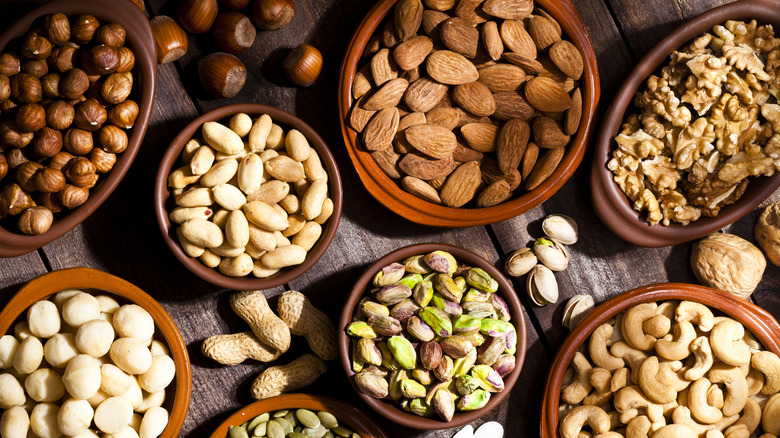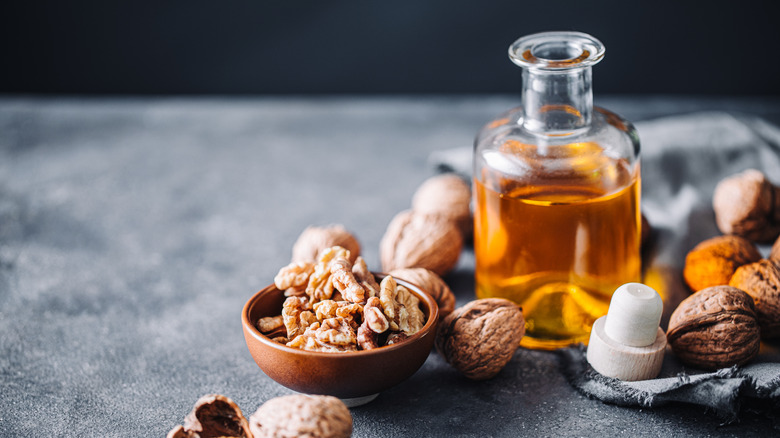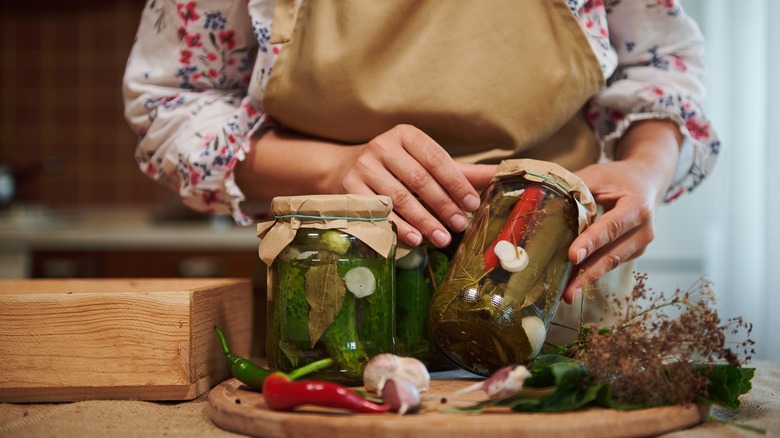The Reason Homemade Canned Nuts Aren't The Best Idea
Canning foods at home has become increasingly popular in recent years. It's a practice that can work for everything from cooked meats to sauces to jams and preserves. All can go in a vacuum-sealed jar, and all can last in your pantry far longer than their previous expiration dates. But there are plenty of possible mistakes and pitfalls to avoid when canning your own food. This is food we're talking about after all, and as with every food trend, there are things you should not do. In this case, you should not try to can nuts at home.
There's a very straightforward reason for this. Nuts are high in oils and fats, and there are a great many reasons that oils and fats don't do well with vacuum-sealed canning. One is that the heating process can cause them to boil and prevent a firm seal on the jar. Another is that oil molecules can surround and protect bacteria that may be present inside them. Because they are very difficult to heat without breaking the seal, said bacteria can survive in the oil.
Risks for salmonella and botulism
It's for this reason that the Penn State Extension urges serious caution for home canning oils and fats, including when it comes to meats or sauces that might be high in them. The same can be applied to nuts, many of which, due to their high oil content, can carry bacteria that are more or less undetectable before and after canning has taken place.
This includes salmonella, one of the biggest big bads in food contamination. According to the National Center for Home Food Preservation, moisture during the canning process could open up the nuts to bacteria growth such as salmonella. As a result, canning nuts carries a risk of potential food poisoning.
Boltulism is also a risk, particularly for foods low in acid like nuts. The NCHFP post recommends against trying to can nuts at home, though it does provide alternative ways for storing nuts, after roasting them, in sterilized canning jars without actually putting them through the canning process. Exposing the nuts to as little liquid as possible, as well as sterilizing the jars, helps minimize the nuts' exposure to bacteria or molds that might find their way to the nuts' oils.
Staying safe while home canning
Of course, this isn't the first time home canning has become trendy. Vacuum-packing cooked meats, fruits, sauces, and preserves in jars was a way for our grandparents and great-grandparents to ensure that they had enough of their favorite foods during economically precarious times. In an era of supply-chain disruptions, inflation, and spiking food prices, it's little wonder that the practice has found new purchase (via Vox).
Nuts faced supply chain challenges even before the Covid-19 pandemic (via the Guardian), so it's understandable that some might want to package their favorite cashews, almonds, or pistachios for a possible disruption down the line. Alas, doing so simply presents too many health risks. These same risks, and others for that matter, are what make careful home canning so important. It is crucial to follow recipes, as well as canning 101. Most essential steps are there for a reason, and skipping them can have consequences.
There are also, it is important stress, other foods that home canners should avoid, including some that are also high in fats and oils, and magnets for bacteria. These include dairy products, eggs, starches like rice and pasta (whose density can interfere with heating), and certain kinds of starchy or high-liquid vegetables. It is also important to follow recipes that have been confirmed safe.


